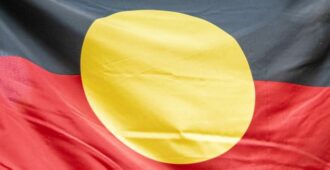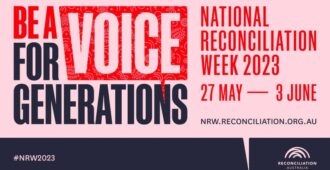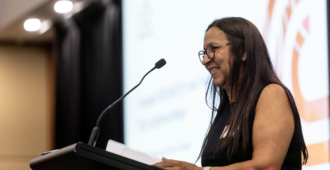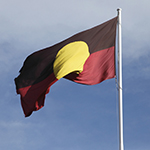
A just published journal article provides some good news in the area of Aboriginal health, with researchers finding that most urban Aboriginal adolescents seem to be resilient despite higher rates of various factors, including cultural marginalisation, known to worsen health outcomes.
The paper, published last week in the Australian and New Zealand Journal of Public Health, is led by the Sax Institute’s Mr Christian Young, with Dr Anna Williamson and three others as co-authors. It looked at survey data collected from 119 Aboriginal adolescents participating in the Institute’s SEARCH study.
While Aboriginal adolescents are known to have higher rates of discrimination, lower socioeconomic status and other factors linked to poorer health outcomes, the researchers found 73% of respondents were in the low-risk range of the Strength and Difficulties Questionnaire’s (SDQ) ‘total difficulties’ scale, while 86% were at low risk for poor prosocial behaviour. Furthermore, the study found that family encouragement to attend school, having a confidant to discuss concerns, and regular strenuous exercise, factors linked with resilience in previous SEARCH qualitative research, were all associated with better SDQ scores – and that even a small amount of exercise appeared to be beneficial.
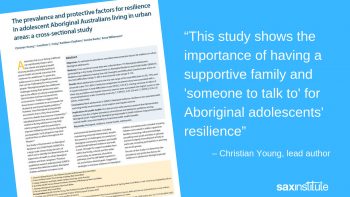
“This study shows the importance of having a supportive family and ‘someone to talk to’ for Aboriginal adolescents’ resilience. That most of the adolescents indicated that they have access to this type of support is a positive finding from this study,” he said.
“Family support, social support and regular strenuous exercise were associated with resilience in Aboriginal adolescents. While most adolescents were seen to be resilient, programs that can enhance these areas are likely to benefit Aboriginal young people, particularly those living in challenging circumstances.”
Meanwhile in a separate study recently published in BMJ Open, Sax Institute researchers have found relatively high rates of ED presentations and hospital admissions for mental health issues among the nearly 1,500 Aboriginal children in the Institute’s SEARCH study cohort – providing the first insights into use of mental-health related tertiary care by this demographic group.
The study found tertiary care for mental health issues was relatively common among participating Aboriginal children, and that living in foster care, having a history or mental or behavioural issues or having caregivers who are unemployed or chronically ill all increased the chance of tertiary care for mental health conditions.

